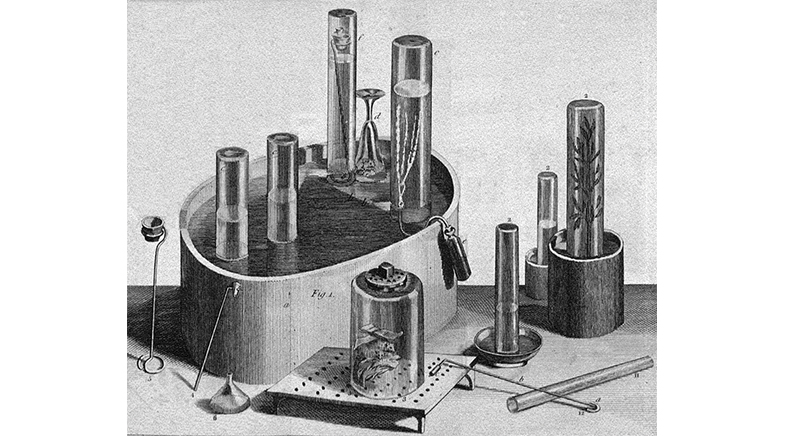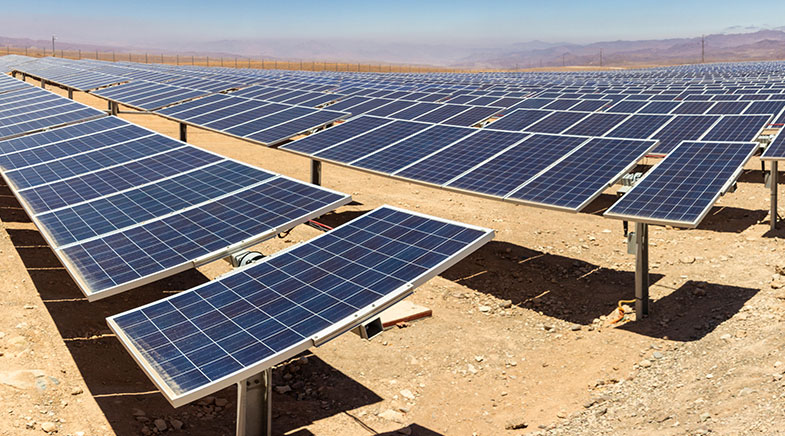Bright sparks
-
- from Shaastra :: vol 01 edition 03 :: Sep - Oct 2021
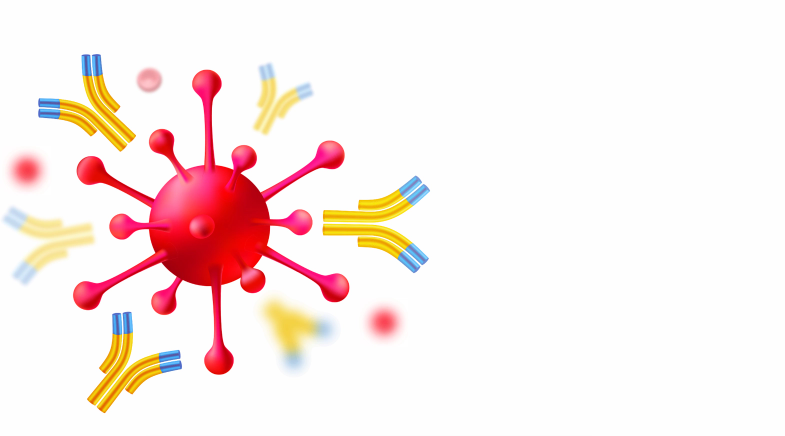
Three start-ups zoom in on water, motor and antibodies.

ImmunitoAI
Founders: Trisha Chatterjee, Aridni Shah
Year: 2020
Big idea: Using AI to identify and evolve antibodies
Trisha Chatterjee and Aridni Shah met when they joined the Bengaluru cohort of Entrepreneur First (EF) in August 2020. The two had different ideas about what they wanted to do at the accelerator: Shah was a molecular biologist and Chatterjee's expertise was in machine learning and artificial intelligence. Chatterjee was drawn to logistics but increasingly interested in Shah's core area - antibodies. Several brainstorming sessions later, the two found a problem they wanted to solve - the lack of antibody-based therapeutics in India.
And that was how ImmunitoAI was launched in November 2020 with pre-seed funding from EF. They have since raised a seed round of $1 million from pi Ventures and other investors.
Shah was exposed to the world of antibodies as a PhD student at the National Centre for Biological Sciences, Bengaluru. She worked with honeybees, which meant she had to develop antibodies for many of her experiments. Shah realised how difficult it was to discover antibodies, yet how much of potential they had in targeted drug delivery.
Antibodies are proteins with two special attributes: they are specific about the targets they bind to, and they bind very tightly. Scientists harness these attributes to deliver drugs to specific targets in the body. For example, in cancer treatment, instead of chemotherapy that affects all cells, antibodies can be used to deliver a drug exclusively to malignant cells. For this, artificial antibodies need to be designed that target the cancer cells.
Globally, pharmaceutical companies are working on targeted drug delivery. ImmunitoAI, too, wants to create antibody-based targeted therapies. Right now, though, it is putting in place systems that will allow it to efficiently identify relevant antibodies from a vast pool.
Their first tool is called imRANK, an AI-based platform that can scan through thousands of antibodies to find the ones best suited to bind a target antigen. Shortlisted antibodies are then ranked in their order of "binding affinity", Chatterjee says. To make its predictions, imRANK uses the sequence as well as the 3D structure of the interacting antigen and antibody. These predictions are validated through experiments and the results are fed back into the AI tool to train it.
Currently, identifying antibodies is time-consuming and requires considerable experimental work. Shah says that imRANK can help reduce time spent in screening and identifying appropriate antibodies. Also, the antibodies identified by imRANK are likely to perform better. The tool is expected to be ready by 2022-end.
Their second product, imEVOLVE, will improve the functionality or binding affinity of existing antibodies. For example, if an antibody is performing sub-optimally, imEVOLVE will introduce mutations in its sequence, analyse how binding affinity gets affected due to the mutation, and then predict an evolved version of the original antibody.
Companies looking to develop targeted drugs could use such tools. ImmunitoAI is open to having others use their tools but eventually wants to use them to develop targeted antibody-based therapeutics for diseases prevalent in tropical countries.
- Manupriya
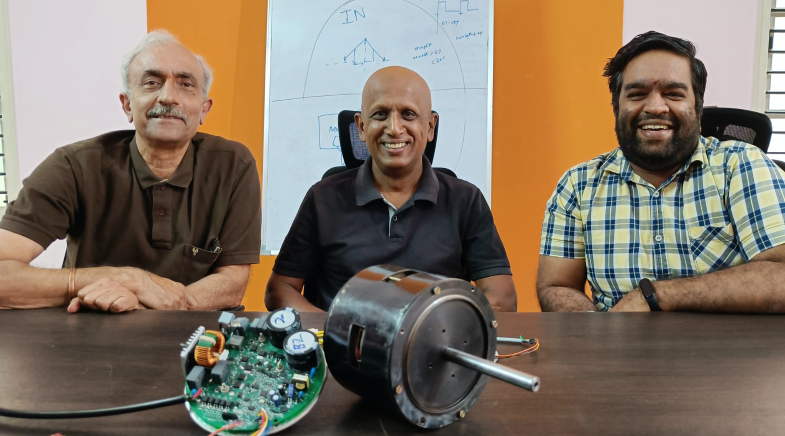
Chara Technologies
Founders: Ravi Prasad, Bhaktha Keshavachar, Mahalingam Koushik
Year: 2019
Big idea: Efficient, rare-earth-free motor
In a two-bedroom flat in Bengaluru, three men are developing a motor. And not just any motor. Bhaktha Keshavachar, Ravi Prasad, Mahalingam Koushik, all with a background in developing technology products in India, have zeroed in on an efficient, rare-earth-free motor to be used in air conditioners, drones, electric vehicles and other machines.
Currently, two types of motors are largely in commercial use: the induction motor, which is poor in efficiency, and the high-efficiency Brushless DC (BLDC) motor. BLDC motors, however, require rare-earth magnets such as neodymium. At present, neodymium is mined and processed mostly in China, which means its price fluctuates with changing geopolitical conditions. Mining these rare-earth elements also causes environmental damage. These factors prompted the three men to start Chara Technologies in 2019. The start-up is focused on creating an electric motor that is efficient, rare-earth free and entirely made in India.
Chara's motor is an upgrade of the Switched Reluctance Motor (SRM), patented by W.H. Taylor in the U.S. in 1838. SRMs are not much in commercial use, possibly because the output torque in these motors is hard to control. The motor's design is such that the output torque tends to rise or fall. Researchers call this the high torque ripple. Conventional SRMs are also noisy. But these problems have largely been resolved in Chara's SRM 2.0 motor.
To minimise the torque ripple, Chara uses electronic controls to deliver current to the motor. Current delivery should be precise and continuously adjusted. An algorithm calculates the right amount of current in real-time and pushes it out. Recent advancements have led to the easy availability of high-powered electronics that can be used in these motors. That is why these are also called "software motors", Chara Technologies CEO Keshavachar says.
The SRM 2.0 has innovations in motor design, motor controller hardware and the algorithm used to control the motor. Conventional SRMs are "25-30% poorer in torque density than BLDC motors," Chara Technologies CTO Koushik says. Chara has narrowed this to 5-10%, he adds. The team is now in the process of patenting its innovations.
Chara wants to make a range of high efficiency, rare-earth-free, motors. It is developing another type of motor called synchronous reluctance motors and is interested in induction motors, which are low in efficiency but rare-earth-free.
Some buyers have shown an interest in Chara's motors. The team says an India-based HVAC company, whose name it did not want to divulge, would soon deploy Chara's motors in its products. Chara is also designing motors for Bengaluru-based E.V. scooter fleet Bounce.
Chara's focus is on making motors as per customer requirements. There is a one-time design fee and Chara owns the IP. The controlling algorithm is provided in the form of a software package, for which it charges royalty on a per use basis. For now, Chara has no plans for large-scale manufacture. It wants to be known as a technology company specialising in designing high-efficiency, rare-earth-free motors.
- Manupriya
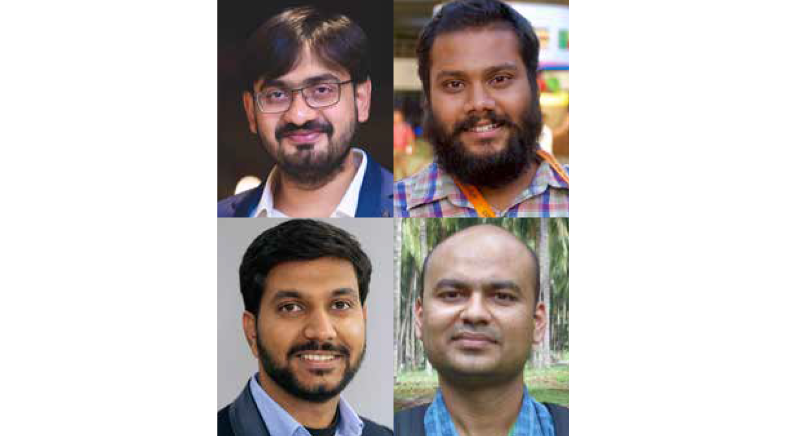
Kritsnam Technologies
Founders: K. Sri Harsha, Prudhvi Sagar, Vinay Chataraju, Neeraj Kumar Rai
Year: 2015
Big idea: Counting every drop of water
Technology, quite like water, is omnipresent. But has it been put to effective use in managing water resources in India? This question led K. Sri Harsha and three of his friends from the Indian Institute of Technology (IIT) Kanpur to set up Kritsnam Technologies six years ago.
As part of his M.Tech thesis, Harsha needed real-time water level data from different spots along the Ganga. As some data was missing, Harsha, who did his B.Tech and M.Tech from IIT Kanpur, visited some stations where hourly readings were collected.
At one station he visited in 2015, he found an elderly man taking the readings. "He was so old that he couldn't read the gauge," Harsha recalls. The man also confessed he checked the readings only twice a day; he filled in the rest as he said he knew how the water level fluctuated in the river. At another station, a small boy took the readings once or twice a day, and then passed on the information to his father, who had possibly been assigned to do the job.
"This is the quality of the data that we are building sophisticated models on. Unless the data is good, these models are of no use," Harsha adds.
His subsequent probe into how water data is collected in different departments convinced him that water management was built on nothing but guesswork.
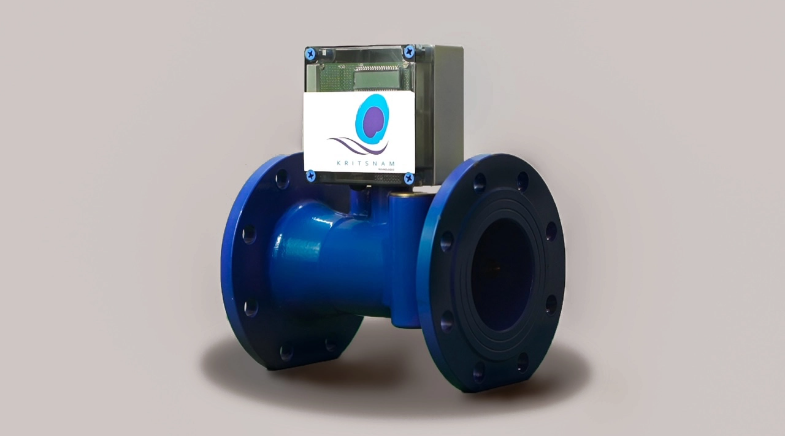
Sensing a business opportunity in reliable water data collection, he teamed up with Prudhvi Sagar, Vinay Chataraju and Neeraj Kumar Rai to found Kritsnam Technologies in November 2015.
Kritsnam focused on building tamperproof instruments for monitoring water quality and quantity. "Measuring level and flow is the core of water management. If you can measure that, you can almost budget any water resource, from rivers to canals to ponds. So we decided we would take robust instruments that … would empower water managers with hardware and software tools," Harsha says.
This provider of IoT (Internet of Things) solutions for water management recently raised ₹6 crore in Pre Series A funding from IIT Kanpur alumni, including BVR Mohan Reddy, Founder Chairman of the Hyderabad-based Cyient Ltd. With grants worth ₹2.3 crore received from various ministries and departments including the Ministry of Human Resource Development and Departments of Biotechnology and Science and Technology, it demonstrated how artificial intelligence and machine learning could be harnessed for efficient drinking water and irrigation projects. Irrigation efficiency is as low as 38%, reveal official records, indicating the need for a wider adoption of technology in managing water for irrigation.
Kritsnam recently ventured into the commercial market by developing remotely-monitored water flow meters. New norms brought in by the Central Groundwater Authority have also helped the start-up. Under these norms, commercial entities, including residential blocks, which withdraw more than 100 kilolitres per day of groundwater, should bring down extraction by 20% over the next three years. There are over 30 lakh establishments that need to install such flow meters.
For the start-up, clearly, every little drop matters.
- T.V. Jayan
Have a
story idea?
Tell us.
Do you have a recent research paper or an idea for a science/technology-themed article that you'd like to tell us about?
GET IN TOUCH










